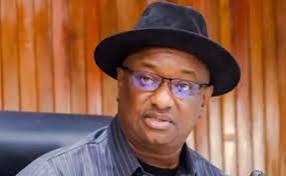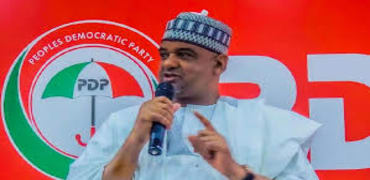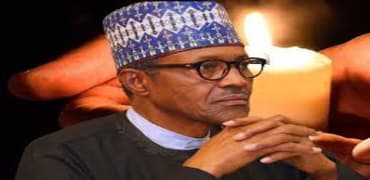2027 Storm Clouds: Keyamo Warns PDP, El-Rufai Predicts Tinubu’s Fall, NSA Counters “Banditry Lies”
2027 Storm Clouds: Keyamo Warns PDP, El-Rufai Predicts Tinubu’s Fall, NSA Counters “Banditry Lies”
Nigeria’s political space is heating up with less than three years to the 2027 general elections, as cabinet ministers, ex-governors, and rights groups trade accusations, warnings, and counterclaims.
The latest sparks flew from Festus Keyamo, the fiery Minister of Aviation and Aerospace Development, who took to X (formerly Twitter) with a legal and political grenade for the opposition Peoples Democratic Party (PDP): fielding Goodluck Jonathan or Peter Obi in 2027 could amount to electoral suicide.
At the same time, former Kaduna governor Nasir El-Rufai resurfaced with scathing predictions that President Bola Ahmed Tinubu would not only lose but likely come a distant third if he seeks re-election. His comments drew swift rebuttals from both Kaduna politicians and the Office of the National Security Adviser (ONSA), which accused him of peddling falsehoods on the government’s anti-banditry strategy.
The unfolding drama reflects Nigeria’s deepening mix of political intrigue, constitutional battles, and public distrust — a dangerous cocktail ahead of 2027.
Keyamo’s Legal Bombshell: PDP Faces a Trap with Jonathan or Obi
Keyamo, a Senior Advocate of Nigeria, argued that the PDP risks being knocked out of the race entirely if it gambles on ex-President Jonathan. His warning hinged on Section 137(3) of the 1999 Constitution (as amended), which bars anyone sworn in twice as president from seeking office again.
Jonathan, who became president in 2010 after Umaru Yar’Adua’s death and won a full term in 2011, falls into a murky legal zone.
“If Jonathan is fielded and later disqualified by the Supreme Court after nominations close, the PDP may be left with no candidate at all,” Keyamo declared. “No one should cry judiciary conspiracy; the danger is glaring.”
He extended his argument to Peter Obi, warning that wooing him back from the Labour Party would fracture the “Obidient” movement and leave PDP battling the same zoning dilemma it failed to resolve in 2023.
In his characteristically blunt style, Keyamo blamed PDP’s “original sin” — refusal to zone its ticket southward in 2023 — for its electoral woes. According to him, even a strong Yoruba candidate would face resistance from other regions unwilling to hand over power for a potential fresh eight years.
But rights advocates were unimpressed.
HURIWA Fires Back: Focus on Aviation, Not 2027
The Human Rights Writers Association of Nigeria (HURIWA) lambasted Keyamo, describing his political commentary as “insensitive and diversionary.”
The group argued that Nigerians were drowning in economic hardship, poor infrastructure, and over-taxation, while ministers like Keyamo spent their energy on premature election permutations.
“A minister tasked with fixing Nigeria’s collapsing aviation sector should not be moonlighting as APC’s political strategist,” HURIWA fumed. “This administration was hired to govern, not to campaign three years early.”
The rights group warned President Tinubu to rein in cabinet members who, instead of providing solutions, have become “loudspeakers of 2027 politics.”
El-Rufai’s Thunder: “Tinubu Will Come Third”
Meanwhile, Nasir El-Rufai, once a kingmaker in the ruling APC, threw gasoline on the fire during a Channels TV interview.
The former governor, now a key player in the African Democratic Congress (ADC), flatly declared that Tinubu had no path to victory in 2027.
“At best, Tinubu will come third. He cannot win. I have done the maths,” El-Rufai said.
Drawing parallels with Jonathan’s 2015 downfall, El-Rufai accused Tinubu of presiding over an economy that had pushed 30 million more Nigerians into poverty in just two years.
He dismissed the President’s famed political cunning as a myth:
“He may boast of money, INEC, the army, the police — but that will not save him. The numbers don’t add up. The country is tired.”
The ex-governor, who famously fell out with Tinubu after his ministerial nomination collapsed in the Senate, also took aim at his former protégé, Governor Uba Sani of Kaduna State, accusing him of orchestrating an attack on an ADC event.
“I have evidence,” El-Rufai insisted, promising to present it to police authorities. He denied any personal feud with Sani, describing him as “a former mentee” who had strayed.
Security Agencies Clap Back: NSA Rebukes “Banditry Lies”
El-Rufai’s interview did not only shake the political establishment — it struck a nerve with the Office of the National Security Adviser (ONSA).
Reacting late Friday, ONSA dismissed as “baseless” his claim that the federal government was funding or incentivising bandits under the guise of negotiations.
“At no time has this administration paid ransom or induced criminals,” ONSA spokesperson Zakari Mijinyawa said. “On the contrary, our military operations have killed or captured notorious bandits across Kaduna and beyond.”
The statement listed slain kingpins such as Boderi, Baleri, Sani Yellow Janburos, Buhari, and Boka, alongside the recent capture of Ansaru leaders.
ONSA accused El-Rufai of insulting the memory of slain soldiers by trivialising their sacrifices.
“This fight is a collective struggle, not a stage for political point-scoring,” it concluded.
Analysis: 2027 as the New Battleground
The clashes among Keyamo, El-Rufai, HURIWA, and the NSA illustrate a deeper problem: 2027 has already become the ruling elite’s obsession, while citizens wrestle with inflation, unemployment, insecurity, and a collapsing healthcare system.
Keyamo’s legal chess, El-Rufai’s electoral maths, and HURIWA’s scolding of “political distractions” all point to the same reality — Nigeria’s governance is being swallowed by the politics of succession.
For the ruling APC, the danger is twofold: a restless electorate and fractures within its own ranks. For the PDP, the danger lies in ignoring constitutional landmines and internal zoning demons. And for Nigerians, the risk is that 2027 politics will overshadow the urgent task of governance in 2025.
By Haruna Yakubu Haruna


















